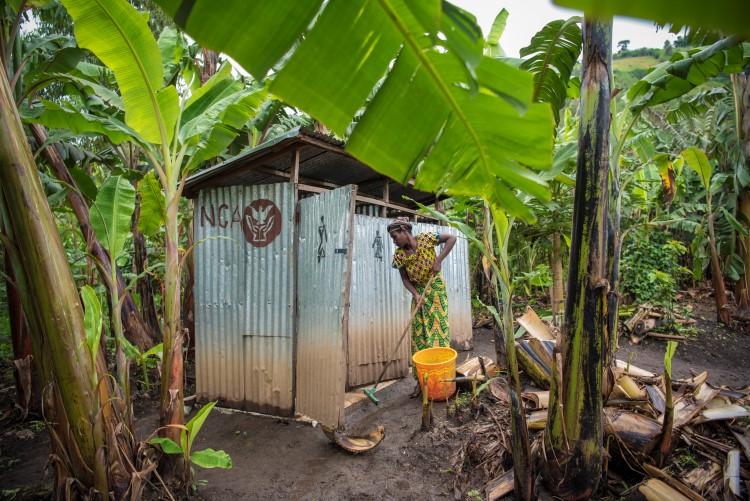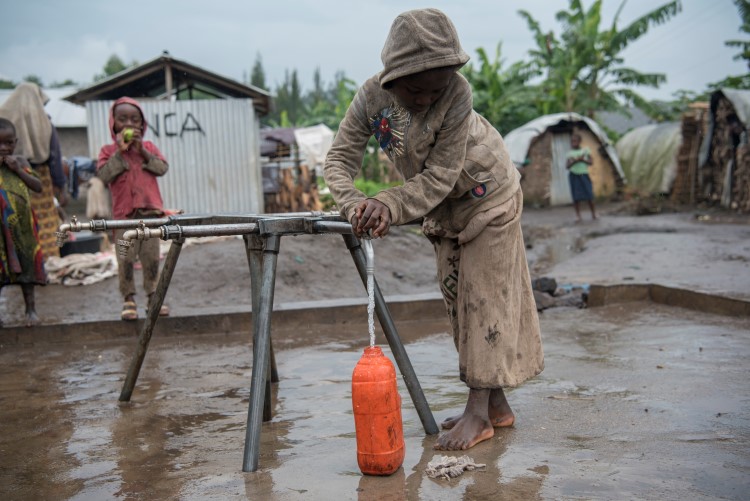Norwegian Church Aid in the Democratic Republic of Congo
- Presence since: 1990 (Also supported in 1973-1984)
- Funds used in 2022: 59 million NOK
Our work in Democratic Republic of Congo focuses on three topics: Climate Resilient Water, Sanitation and Hygiene; Fighting Inequality; and Faith-Based Climate Action.
Democratic Republic of Congo (DRC) is plagued by conflicts over land and valuable minerals, armed groups, and military operations. High levels of insecurity and widespread poverty have resulted in the internal displacement of over 3 million people who form part of the 7.3 million people in DRC with urgent humanitarian needs. The economy has suffered under high rates of inflation, and there is a deep mistrust between citizens and the government. Gender-based violence (GBV) is also widespread, with women subjected to institutional discrimination and sexual violence normalised. Space for civil society and freedom of expression is vulnerable and threatened by state authorities. Mining activities are the main drivers of conflict, as communities struggle to gain access to and control over natural resources. As a result, access to healthcare, water, food and housing are often violated in mining communities, leaving women and children particularly vulnerable. The complexities of conflicts in the country are further aggravated by the spread of deadly diseases such as Ebola, measles and cholera.

NCA established a presence in DRC in 1994 to respond to the massive influx of people from Rwanda following the genocide. The humanitarian assistance programme continues today, and a long-term development programme has been added to NCA’s portfolio. Partnering with local organisations in DRC is integral to fulfilling NCA’s mandate to strengthen civil society in the country. NCA in DRC has documented experience working with sensitive issues such as security and GBV, and ensuring safe access to water, sanitation and hygiene facilities.

NCA in DRC contributes to a non-violent, respectful and resilient society that allows women, men, girls and boys to live healthy and dignified lives. Together with its partners, NCA implements long-term development and humanitarian programmes in the following areas:
NCA is responding to the protracted humanitarian crisis in DRC, as well as the Ebola outbreak. The response includes assisting and protecting survivors of sexual and gender-based violence, and ensuring access to WASH services for vulnerable populations, such as women and children.
NCA’s long-term development programmes empower and protect women, men, boys and girls affected by harmful mining practices, and provide GBV survivors with lifesaving and specialised GBV services. Programmes also promote just resource governance, safeguard reproductive health rights, and facilitate access to WASH services.
NCA implements its programmes in the North and South Kivu Provinces. In South Kivu, NCA works in the Fizi, Kabare, Kalehe, Uvira and Walungu territories. NCA will also work in Idjwi, Mwenga and Shabunda territories should there be a need for emergency intervention. In North Kivu, NCA’s focus areas are Masisi and Rutshuru. Programmes target women, men, girls and boys affected by GBV, harmful mining practices and lack of WASH facilities.